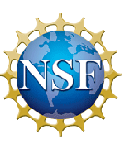-
Joachim M. Buhmann - Context Sensitive Information: Model Validation by Information Theory
-
Wednesday, January 18, 2012 1:30 PM - 2:30 PM EST
LWSN 3102
Purdue University
Abstract
Learning patterns in data requires to extract interesting, statistically significant regularities in (large) data sets, e.g. detection of cancer cells in tissue microarrays and estimating their staining or role mining in security permission management. Admissible solutions or hypotheses specify the context of pattern analysis problems which have to cope with model mismatch and noise in data. An information theoretic approach is developed which estimates the precision of inferred solution sets and regularizes solutions in a noise adapted way. The tradeoff between "informativeness" and "robustness" is mirrored in the balance between high information content and identifiability of solution sets, thereby giving rise to a new notion of context sensitive information. Cost function to rank solutions and, more abstractly, algorithms are considered as noisy channels with an approximation capacity. The effectiveness of the principle is demonstrated by model validation for spectral clustering based on different variants of graph cuts and by analyzing preference data to robustly extract total orders of ranked items.
Bio
Joachim M. Buhmann leads the Machine Learning Laboratory in the Department of Computer Science at ETH Zurich. He has been a full professor of Information Science and Engineering (Informatik) since October 2003.Born in 1959 in Friedrichshafen, Germany, he studied Physics at the Technical University Munich and obtained his PhD in Theoretical Biophysics under the supervision of Professor Klaus Schulten. His doctoral thesis was about pattern recognition in neural networks. He then spent three years as a research associate and assistant professor at the University of Southern California, Los Angeles. In 1991 he worked at the Lawrence Livermore National Laboratory in California. He held a professorship for practical Computer Science (praktische Informatik) at the University of Bonn, Germany from 1992 to 2003.
His research interests spans the areas of pattern recognition and data analysis, including machine learning, statistical learning theory and applied statistics. Application areas of his research include image analysis, medical imaging, acoustic processing and bioinformatics. He serves as president of the German Pattern Recognition Society (Deutschen Arbeitsgemeinschaft f\xfcr Mustererkennung) since 2009, including serving on the board during 2000-2003. He was associate editor for IEEE Transactions on Neural Networks, IEEE Transactions on Image Processing and IEEE Transaction on Pattern Analysis and Machine Intelligence.
Associated Resources
Video: Joachim Buhmann - Context Sensitive Information: Model Validation by Information Theory


